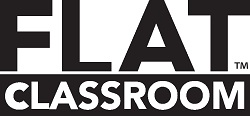Is Wikipedia reliable and should it be used in the classroom?
I started this blog with a question about Wikipedia because it is heavily debated whether or not teachers should allow students to use Wikipedia to research for classroom projects. Will Richardson would argue for the use of Wikipedia in classroom according to chapter 4 of his book, Blogs, Wikis, Podcasts and Other Powerful Web Tools for Classrooms. In this chapter on wikis, he states, "Wikipedia is the poster child for the collaborative construction of knowledge and truth that the new, interactive Web facilitates" (Richardson, 2010, p. 57). Although Wikipedia can be seen as an unedited and unreliable source, Richardson states that, "there are vastly more editors who want to make it right than those who want to make it wrong" (2010, p. 56). I found it interesting how a UB professor actually tested Wikipedia's editors by placing errors throughout different pages and seeing how long it took for the errors to be corrected. The results were only a few hours, which proves that people who read and edit Wikipedia pages have a critical eye for erroneously placed information.
Richardson also urges teachers to try using wikis in their classroom and provides readers with multiple uses and advantages of wikis. Teachers can create Web-based wiki classroom sites that are password protected. This allows anyone with Internet access to read their wiki but only students within the class can edit the site. This eliminates the concern of outsiders vandalizing or erasing valuable content. Using a collaborative site teaches students how to publish content, how to use collaborative skills, how to negotiate with others, and it allows students to begin teaching each other. Two examples that Richardson gives about how to use wikis in the classroom are 1) creating a collaborative classroom text and 2) having students create or edit book entries (2010).
Editing a post on Wikipedia is also a way to introduce a class and get them excited about researching and/or using wikis. This is what Bud Hunt, co-author of "New Voices", did with his tenth grade students. They were learning about subcultures and Hunt used Wikipedia to research the term. As a result of his research, his class found the definition inadequate and so decided to collaboratively revise it (Hunt & Hunt, 2006). A wiki allowed for his class to publish their work in a meaningful way for a real life audience to read.
The wiki that I decided to research was mentioned in Richardson's chapter. The Flat Classroom project wiki was created by two classroom, one teacher from Georgia and one from Bangladesh. This wiki allows students in their classrooms to connect to each other and to students from different countries around the world. The site includes student narratives, essays, audio, video, and captions of the Flat Classroom Conferences, where students from different countries were brought in to meet face to face. The goal of Flat Classroom is stated on their wiki: Flat Classroom™ Projects
Goal: To create and maintain best global collaborative projects and collaborative work spaces for students and educators in and serving K-12 around the world while building bridges between Students, Educators, trainee teachers and Post Secondary Education Institutions.

Another benefit of wikis, that was not mentioned in the readings, is that because they are Web-based and allow students to navigate sites, they will better prepare high school students for the Web-based curriculum's they will face in college. As I looked at different wikis, it seemed to me that their layout is similar to college sites such as Blackboard or WebMail. If students have experience using wikis and navigating the Web, adjusting to a Web-based colleges will be that much easier.
A wiki that I have personally used is PBwiki. It was used for a college class where my classmates and I would post questions about a reading and then critique each others posts. We also published final projects on the site, which meant that we could view all the work and use each others ideas to benefit our own projects. However, we did not use the wiki to make a collaborative piece, which I would have liked more than the assignments we were given. My classmates and I also experienced the negative effects of the site when multiple users were editing. Wheeler, Yeomans, and Wheeler included a section on this in their article "The Good, the Bad and the Wiki". They state, "When students attempted to add to shared pages there was occasional conflict, and the software was unable to cope with the simultaneous posting" (2008, p. 992). The result of multi-use posting was one person got to stay on the site and keep their work while the other lost their work. It was very frustrating for some of my classmates but we quickly learned to draft our posts in a Word document and copy the text into the wiki.

I love how you’ve really considered what students would gain by participating in a wiki, particularly in terms of literacy. Your own prior experiences, the good and the bad, may lay the foundation of how you would use a wiki in your own classroom. I am sure you have thoughts about how you would do things similarly or differently. Great thinking!
ReplyDelete